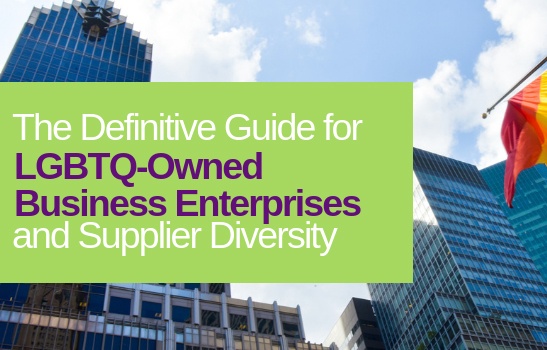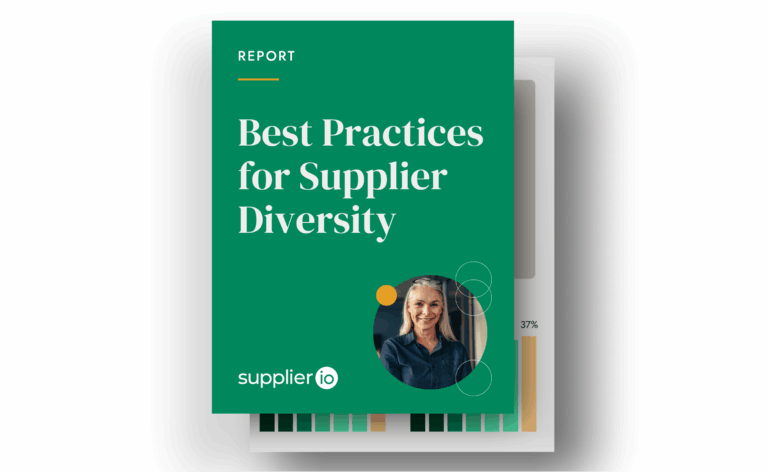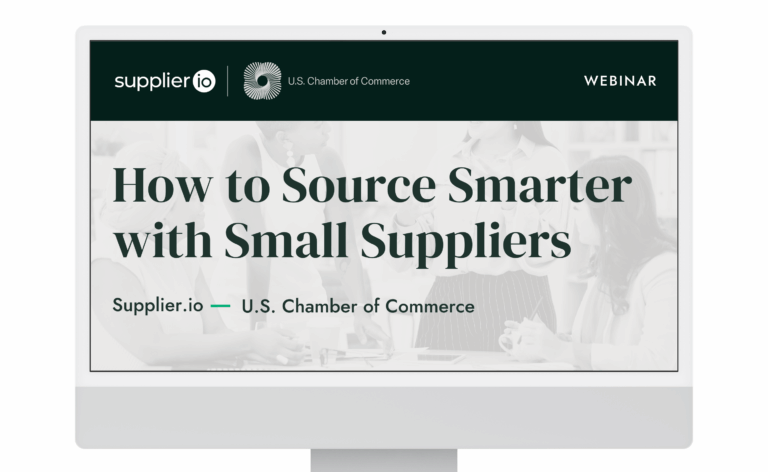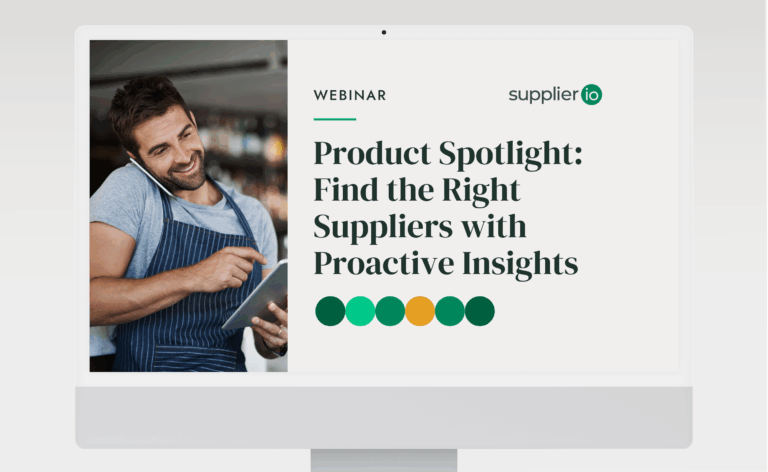The Definitive Guide for LGBTQ-Owned Business Enterprises
Get the guide for resources and information about LGBTQ-owned businesses and supplier diversity.

We know that small businesses are a vital component of our economy. According to the U.S. Small Business Administration (SBA), there are nearly 30 million small businesses in the United States, accounting for a whopping 99.9 percent of all U.S. businesses, and 8 million of those are classified as diverse businesses. These 30 million small businesses make a significant impact on our economy through job creation and innovation.
Lesbian, gay, bisexual, and transgender (LGBT)-owned business enterprises (LGBTBEs) are a growing segment of small businesses. According to a 2016 report released by National LGBT Chamber of Commerce (NGLCC), LGBT-owned businesses contribute approximately $1.7 trillion to the nation’s economy. This economic impact includes spending power, jobs created, and tax revenue.
Corporations are realizing the importance of LGBT inclusion in their supply chains—so much so that the Billion Dollar Roundtable (BDR) has expanded its criteria of diverse businesses that are counted toward a corporation’s supply chain spend. As of 2018, LGBT-owned businesses are included by the BDR in diverse spend.
Read on to learn more about what classifies a business as LGBT-owned and the resources available to certified LGBTBEs.
What Is an LGBT-Owned Business?
Of all the diverse business classifications, LGBT is undergoing the most change as we become more inclusive of nonbinary and gender-fluid individuals. For now, the government and NGLCC, the main certifying entity, use the LGBT acronym, but efforts are underway to define and embrace the “Q” (queer/questioning) in LGBTQ.
LGBT-Owned Business Enterprise (LGBTBE) Requirements
An LGBT-owned business is defined as:
- Majority (at least 51%) owned, operated, managed, and controlled by an LGBT person or persons who are either U.S. citizens or lawful permanent residents
- Exercises independence from any non-LGBT business enterprise
- Has its principal place of business (headquarters) in the United States
- Has been formed as a legal entity in the United States
8(a) Economically Disadvantaged Small Business Requirements
The federal government tries to award at least 5 percent of all federal contracting dollars to small disadvantaged businesses each year through the 8(a) program. To qualify for the 8(a) program, a business must:
- Be a small business
- Not already have participated in the 8(a) program
- Be at least 51 percent owned and controlled by U.S. citizens who are economically and socially disadvantaged
- Be owned by someone whose average adjusted gross income for three years is $250,000 or less
- Be owned by someone with $4 million or less in assets
- Have the owner manage day-to-day operations and also make long-term decisions
- Have all its principals demonstrate good character
- Show potential for success and be able to perform successfully on contracts
More information about small business categories can be found on the SBA’s website.
Becoming Certified as an LGBT-Owned Business
If you meet the requirements to be an LGBTBE, your next step is to become certified. There are two types of certification, although they are not equal: self-certification and third-party certification.
Although self-certification is simpler than going through a third party, many of today’s corporations prefer the latter, and the BDR does not accept self-certification. Third-party certification provides corporate supplier diversity programs with the assurance that an independent, nationally recognized agency vetted your company and verified your LGBT-owned status.
Self-Certification
Follow the SBA online self-certification process. Use the link below to begin certifying your LGBTQ-owned business.
Third-Party Certification
NGLCC is currently the only third-party certification entity in the United States for LGBTBEs. Certified LGBTBEs are routinely sought after by NGLCC corporate partners that are looking to increase their spend with the LGBT business community, especially now that LGBTBE spend is counted by the BDR. Certified LGBTBEs have access to more than 160 contacts with corporate representatives and supplier diversity professionals through NGLCC. The organization and its affiliate chambers also hold face-to-face matchmaking and networking events across the country throughout the year.
Education and Training
Education, Funding, and Contracting Resources
Fortunately, both government and private institutions realize the value of supplier diversity and are investing in supplier development. Whether you’re just beginning your business or you’ve been around for a while, these educational resources are sure to help.
NGLCC Affiliate Chambers
The NGLCC’s network of affiliates stretches across the United States and around the globe. Each affiliate offers its own resources, including business training and education, networking opportunities, and matchmaking events.
As it strives to be more inclusive of the entire LGBTQ community, NGLCC is currently convening a group of diverse leaders who will improve and advise upon efforts to procure goods and services from trans and nonbinary business owners through the Trans+ Inclusion Task Force.
StartOut
This nonprofit organization seeks to connect and educate LGBTQ entrepreneurs via resources such as a proprietary networking portal and forum, events located around the country, mentorship opportunities, and even coworking space for LGBTQ entrepreneurs located in San Francisco. StartOut also offers a premium membership service connecting LGBTQ entrepreneurs with accredited investors.
Lesbians Who Tech
Lesbians Who Tech is a community of queer women in Science, Technology, Engineering. And Mathematics (STEM). The organization’s summits are famous for a loaded speaker list, including Hillary Clinton, Sheryl Sandberg (Facebook), former FCC Commissioner Mignon Clyburn, Del Harvey (Twitter), and many more executives, leaders, and entrepreneurs.
The organization also awards the Edie Windsor Coding Scholarship, which covers up to 50 percent of tuition at partner tech schools for “incoming LGBTQ women, non-binary and trans techies to kickstart careers in technology.”
Stanford LGBTQ Executive Leadership Program
This first of its kind program offered at a top university is designed to address LGBTQ leadership in the C-suite. Entrepreneurs may also benefit from the weeklong intensive program, which focuses on topics such as bringing your authentic self to work, building peer networks, strengthening verbal and nonverbal communication skills, and building LGBTQ networks and career paths within your organization.
Reaching Out MBA
Reaching Out MBA (ROMBA) is a nonprofit organization with more than a dozen unique programs dedicated to educating, inspiring, and connecting the LGBTQ MBA community to impact change in the workplace and create the next generation of out leaders. ROMBA’s Out Women in Business conference offers programming and education specifically for lesbian, bisexual, and transgender women.
SCORE
For more than 50 years, the nonprofit SCORE has been helping small businesses get off the ground through education and mentorship.
Because LGBTQ-owned businesses are supported by the SBA, they can take advantage of their services at no charge or at a very low cost. Visit SCORE’s website to find more information on mentors, workshops, and other available resources.
8(a) Business Development Program
The 8(a) program is a business assistance program designed specifically for small disadvantaged businesses. The program is government sponsored, is highly involved, and has some inspiring success stories. Participants go through a four-year developmental stage followed by a five-year transition stage. In addition to the nine-year program, participants have access to specialized business training, marketing assistance, and mentorship programs, to name a few. Find out how your 8(a) minority-owned business can participate here.
Funding
Access to capital is one of the main obstacles to business equality. The federal government offers several forms of assistance for LGBTBEs to secure funding through loans and grants. Additionally, several angel investors specifically seek to invest in LGBTBEs to promote business equality and innovation. Crowdfunding is also increasingly popular as a vehicle for entrepreneurs to fund projects.
SBA Guaranteed Loans
One of the many resources the SBA provides is access to loans; however, the SBA does not loan money directly to small businesses. Instead, it establishes loan guidelines with partnering lenders around the country. The SBA guarantees these loans will be paid, which means small businesses generally receive lower, more competitive rates and fees compared to non-guaranteed loans. Find more information about SBA-guaranteed loans.
USA.gov
Aside from the SBA, the United States offers other government-backed loans and funding resources.
Angel Investors
A number of angel investors have turned their attention to investing in LGBTBEs as an emerging breeding ground of economic impact, innovation, and change. The Angel List has a directory of investors who are specifically interested in LGBTBEs. StartOut offers connections with angel investors as part of its premium membership.
Crowdfunding
As the name suggests, crowdfunding is used by businesses to pull small investments from a large number of investors—unlike traditional investments made by only a handful of people. Many small businesses have found success exercising this type of fundraising strategy.
Crowdfunding sites have become an increasingly popular way to raise money for business ideas ranging from video games to backpacks to feature films to beehives. The SBA provides more details on how to successfully crowdfund for your minority-owned business.
Contracting Opportunities
Both the federal government and many of America’s top corporations require their procurement departments to spend a certain percentage on diverse suppliers every year. Once you are certified as an LGBTBE, it’s time to leverage that certification to gain access to contracting opportunities.
Supplier Registration Platforms
To streamline supplier diversity, blue-chip firms invest in third-party supplier registration portals to streamline the buyer-supplier contracting process.
Free registration, seamless communication with potential buyers, and robust opportunity filtering are just a few features that a quality platform should provide to suppliers. Register your company today to start on the path toward working with Fortune 1000 companies.
8(a) Business Development Program
Small disadvantaged business participants may be eligible for sole-source contracts, up to $4 million for goods and services and $6.5 million for manufacturing, through the 8(a) program.
What may be an even greater aspect of the 8(a) program is a participant’s ability to form a joint venture or team to bid on contracts. This gives 8(a) firms the ability to fulfill larger contracts that they may not be able to handle alone while also developing industry relationships. Interested in learning more about the 8(a) program and its requirements? Find that information here.
Historically Underutilized Business Zone (HUBZone) Program
The SBA created this program to assist businesses in economically depressed areas that often face greater business disadvantages.
While not restricted to minority-owned businesses, the HUBZone program can be a boon to your organization if you qualify. This two-minute video gives a quick overview as well as details on how to participate in the program.
What resources have you leaned on to succeed as an LGBT-owned business?




